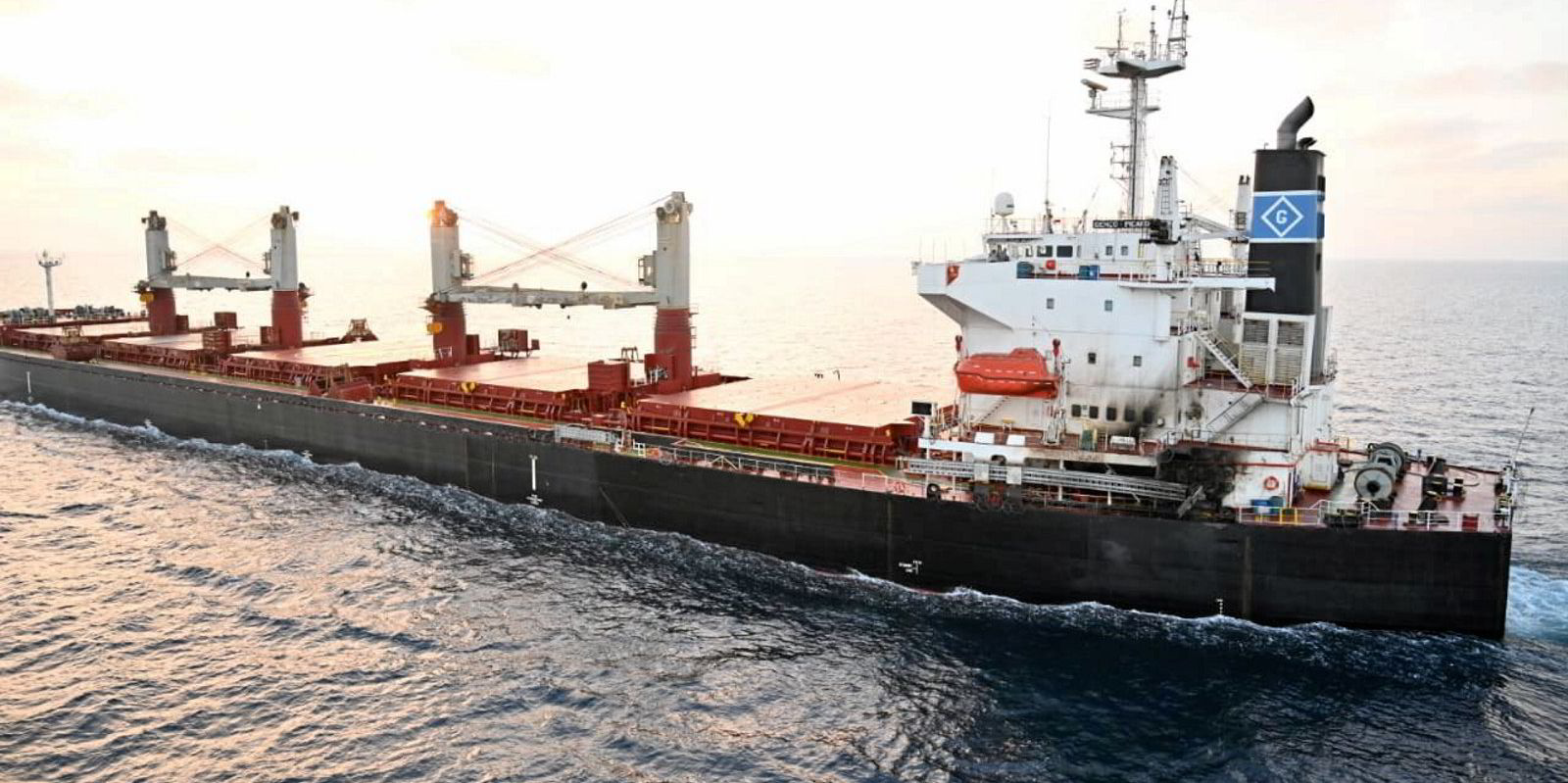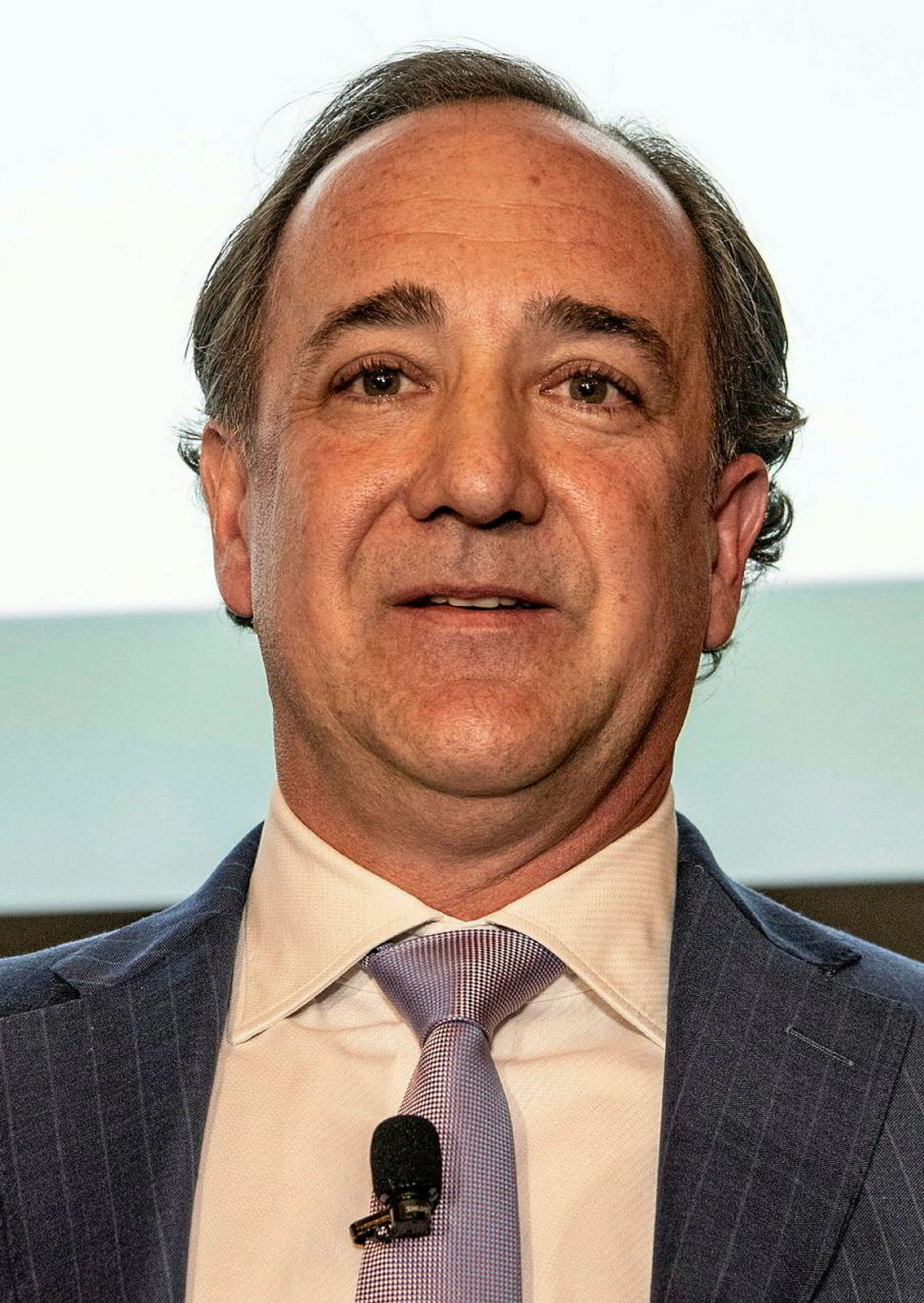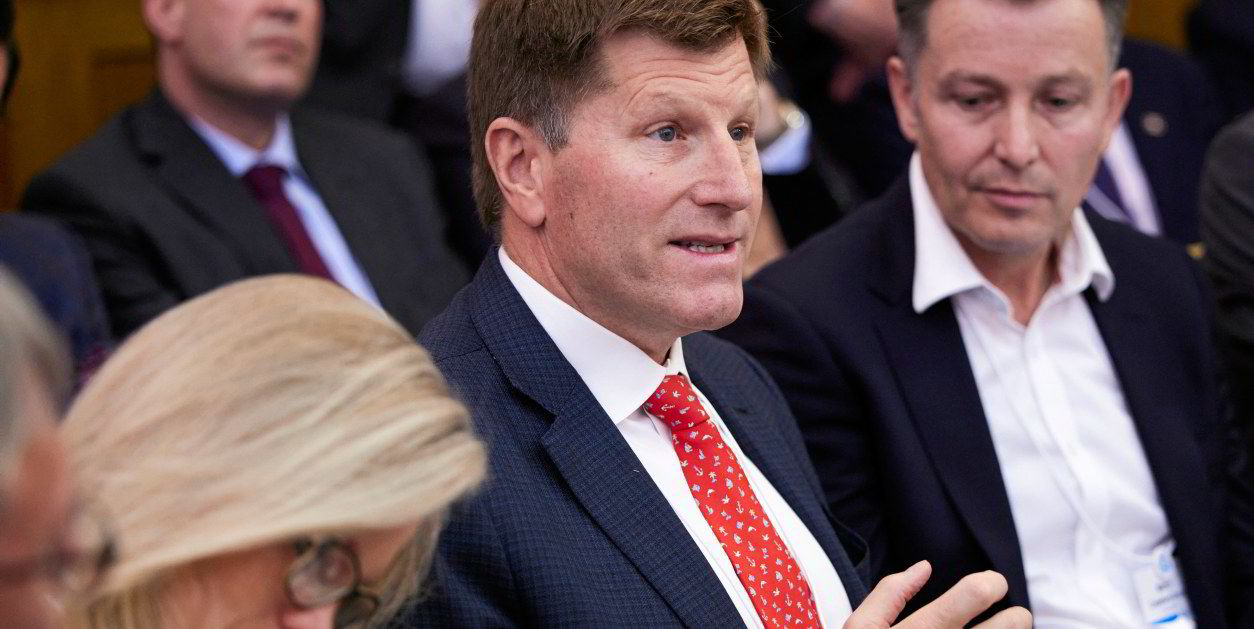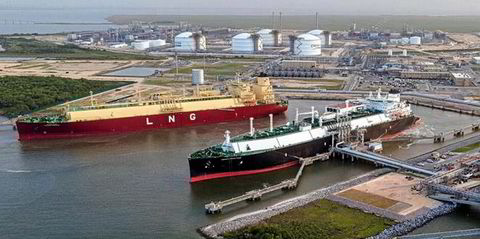There’s a lot on the plate of a public company chief executive in shipping these days, whether it’s seeing one of the company’s bulkers come under attack from the Houthis in the Red Sea or fending off a proxy battle from a famed Greek shipping magnate.
TradeWinds spoke with New York-listed Genco Shipping & Trading’s John Wobensmith on both those subjects and more during an on-stage interview at TradeWinds’ New York Shipowners Forum.
You have a significant investor, George Economou, who now holds a 5.4% stake and is engaged in a highly visible proxy battle. What are your thoughts on this development?
Look, we obviously put out what our advisers called a fight letter … which was put out to really rebut the bogus information that was in his proxy statement. So I think that that letter speaks for itself.
I look at our board. I think it’s a very well-functioning board. It is a diverse board. It has a lot of expertise on it. Capital allocation, commercial, technical — it’s very well-rounded. So it’s very tough for us to figure out what he really brings to the table at this point.
We have this strategy currently that’s in place that is working well. And quite frankly, I know from an industry standpoint, it’s a great theatre ticket to have, right?
But the reality is when we talk to shareholders, very, very rarely do we get any questions about George Economou and the proxy side of it. We get more questions about, tell me about your value strategy, tell me about the market, tell me about you taking your leverage down and congratulations on such a low break-even rate.
That’s what the conversations are more focused on than anything else.
It’s common for public dry bulk companies to trade below NAV, including yours, despite recent share price improvements. How well do you think investors grasp your message?
It’s not just us. Most of the dry bulks are trading below NAV. I think half of the tanker stocks are trading below NAV. And it’s a very hard thing to say it’s this one silver bullet that you can fix to get things up. I still think shipping has got a little bit of a black eye with investors.
Because of what we’ve seen, again, over the last decade, there’s been a lot of capital destroyed in shipping. There’s been a lot of money made as well, particularly over the last few years. I think consistency and the ability for investors to look forward a few quarters and understand that dividends are moving up, and freight rates are at least stable if not moving up.
I think that that ability to look forward is what ultimately brings values up. I think we’re finally starting to see — at least I see in the analyst reports on the dry bulk side — more focus on cash flow valuation and dividend yield, rather than NAV, which at any given time really is backwards-looking. It never looks forward.
And I think the mentality is now starting to change. We certainly saw it when we put out our fourth-quarter numbers, which were very good and a very solid dividend, but then we also gave the guidance on the first quarter, and I think that’s what really started to close, at least for us, the valuation gap between where we are and where NAV is.

Unfortunately, there was an incident involving one of your vessels being attacked by the Houthis. Could you share your experience dealing with that incident and provide a brief recap?
As you can imagine, that phone call comes in and your heart just sinks. … We made the decision towards mid to end of December that we were not going through the southern Red Sea area, and that we were going to reroute around the Cape of Good Hope. Unfortunately, we still had two ships. So we had a capesize that was loaded with iron ore that that had come through Suez. And then we also had the Genco Picardy, which is the vessel that you’re referring to, and she needed to load phosphate in Egypt, going to India.
So we took extra precautions, and what I mean by that is we doubled the amount of guards that we would normally have on board. We had our AIS system turned off. And the Genco Hadrian carrying the iron ore, there was absolutely no issue with that. But unfortunately, as the [Genco] Picardy came down through the straits, and then turned left, we actually thought she was far enough across Yemen, she was 100 miles [160 km] offshore, and we got the phone call that a projectile had come in and hit the vessel.
Very fortunate in that the gangway was up on the deck, and it actually hit the gangway. It did cause a fire, and the crew, being very professional, had the fire out in 10 minutes. And there were phone calls made to the US com [command], and the UK com and ultimately we had an Indian naval vessel that appeared about an hour afterwards and escorted us another 100 miles across Yemen.

The crazy thing was the next day. I mean, I actually thought it was over and done with, and very thankfully, nobody was hurt [with] minimal damage. And somewhere around noon or one o’clock the following day, the phone rings again. We have three drones circling the ship. And you’re just like, “You gotta be kidding me. I gotta go through this again.”

And so first thing is, crew’s safe, guards are on deck and one of the drones wound up actually going into the water. And we gave very explicit instructions — I know that is a very difficult thing to do — but the guards shoot those things down if you can. It never came to that. They left and there was not an incident. … And by the way, we were so far east. It’s amazing, the outreach, and I still believe no way that came off of Yemen. Those came off of boats that were in the area, motherships, smaller vessels.
Was it a harrowing experience for the crew?
It was an awful thing for the crew, but I will tell you, I spoke to the captain after the first incident. And I mean, what a great captain — very stoic. And I’ll never forget it, because I said, “Is the crew OK? How is the well-being of the crew?” And typical stoic master: “Shit happens. We got it under control. This is our job. We’re good.”






